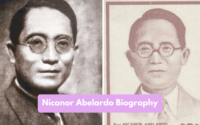Hussain Aslam Bhatti Biography: Age, Net Worth, Family, Wife, Children

The name Hussain Aslam Bhatti is increasingly appearing in references to regional politics and community leadership in Sindh, Pakistan.
Although there is limited detailed published information about his full life-story, available sources show that he is a politically active figure, involved in social service, and identifying as a “special assistant” to the Chief Minister of Sindh.
In this comprehensive biography, we summarise what is known of his early life, career, public work, and legacy — and we also highlight unanswered questions that invite further research.
Early Life & Background
Unfortunately, concrete details about Hussain Aslam Bhatti’s birth date, upbringing, education and early formative years are not broadly documented in reliable public sources. What is clear is:
- He holds the title “Sardar” in some posts, indicating tribal or community leadership.
- He is based in Sindh province, Pakistan, and operates in a political/social service role there.
- His social‐media presence indicates active engagement in community outreach and political messaging.
Because the early biography is sparse, it’s important to treat the following career summary as based on available public records, rather than full scholarly confirmation.
Political & Public Career
Hussain Aslam Bhatti appears to have a public-service and political profile in Sindh. Some of the key points:
- He is identified as Special Assistant to the Chief Minister of Sindh.
- On his social media page, he shares felicitations and messages regarding national-security matters, indicating alignment with broader political concerns such as defense and national pride.
- Posts suggest his engagement with local community issues — for example, fisherman welfare, education and sustainable projects.
- Media posts also show local lawmakers visiting him in hospital, suggesting he is a well-connected figure in his region.
From these pieces, it appears his career blends politics, community service, and social influence in Sindh. However, since there is no robust profile covering his years of service, electoral history, or detailed project work, much remains to be uncovered.
Community & Social Engagement
Beyond formal political roles, Hussain Aslam Bhatti seems to engage in social and community work:
- Posts mention his involvement in transforming fishermen’s lives through sustainable projects and modern education.
- His social‐media presence highlights messages of Pakistan’s national pride, defense forces support, and regional development.
- In local news feeds, his health and hospital visits are covered by other community figures, suggesting he is a local influential person and potentially a local patron or leader.
These suggest that his public identity is not simply as a politician but also as a local leader with community connections and influence.
Significance and Impact
What significance does Hussain Aslam Bhatti hold? We can infer a few points:
- Regional voice: In the Sindh provincial context, having a “Special Assistant to the Chief Minister” role suggests that he is part of the provincial power‐structure, or at least part of the administrative/consultative ecosystem.
- Community linkage: His social media posts show localised outreach, suggesting he may serve as a bridge between provincial government and local communities (fishermen, youth education, etc).
- Symbolic role: The kind of posts congratulating national‐leaders and engaging in civic discourse indicate he positions himself in alignment with national priorities (e.g., defense, province-federal cooperation).
- Potential for further contribution: Given his profile, there is space for more documented work (policy, development, governance) that may emerge or be highlighted going forward.
Challenges & Gaps in the Public Record
There are several gaps and challenges when attempting to craft a full biography of Hussain Aslam Bhatti:
- Lack of verified early‐life data: There are no widely published records of his birth date, family background, schooling or early career.
- Limited documentation of achievements: While posts show activity and leadership, external independent verification of projects, outcomes, or office role details is sparse.
- Unclear electoral history or formal office tenure: It is not clear whether he has held elected office, or whether his role is advisory/appointed.
- Media & academic coverage: He does not appear to have been the subject of major academic or media biography pieces (at least as of now).
Thus, while he is active and visible, much of his story remains to be more deeply chronicled.
What We Can Learn From His Example
From the information available, Hussain Aslam Bhatti’s profile suggests a few broader lessons:
- Local leadership matters: Even roles that are not national‐household names can influence community outcomes, especially when bridging between government and grassroots.
- Public engagement via social media: His use of digital platforms to highlight issues and connect with constituents shows how modern political-social figures operate.
- Service orientation: The emphasis on fishermen, education, sustainable projects suggests that combining political role with societal service can build credibility and differentiate a public figure.
- Information gaps are opportunities: For aspiring biographers or journalists, figures like Bhatti present opportunities to document and evaluate their work, ensuring accountability and recognition.
FAQs (Frequently Asked Questions)
Q1: Who is Hussain Aslam Bhatti?
He is a Pakistani public figure active in Sindh province, known as a “Special Assistant to the Chief Minister of Sindh” with engagements in politics and community-service.
Q2: What is his background?
Detailed publicly-verified background (birth date, education, early career) is not widely published, so publicly accessible information remains limited.
Q3: What does he do?
Based on his public presence, he engages in political advisory roles, community outreach (e.g., for fishermen, education), and broader civic messaging.
Q4: Has he held elected office?
There is no clear, widely-verified record of his holding elected office; his title of “Special Assistant” suggests an appointed or advisory role rather than necessarily an elected one.
Q5: Why is he significant?
He represents a class of regional political-community leaders who operate at the intersection of government and grassroots, which is vital for governance and development in provincial contexts.
Q6: Where can I find more information about him?
His social media pages (e.g., Facebook) appear to be a primary source of his public messaging. Additional media coverage may exist in local Sindh‐area news outlets, which might require regional language (Urdu/Sindhi) searches.
Conclusion
In summary, Hussain Aslam Bhatti is a figure worthy of attention for those interested in regional politics and social leadership in Pakistan’s Sindh province.
While not enough publicly documented data allows for a full in-depth biography at this time, what is visible suggests a person engaged in bridging government functions and community welfare.
For readers or researchers, his profile is a reminder that leadership operates at many levels — and that unlocking local stories often illuminates wider patterns of governance, society and development.


